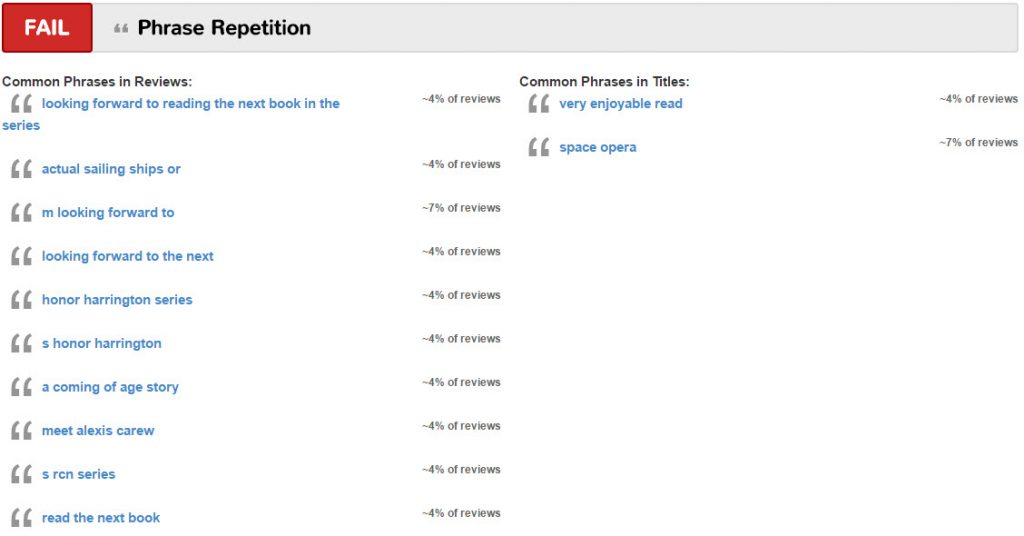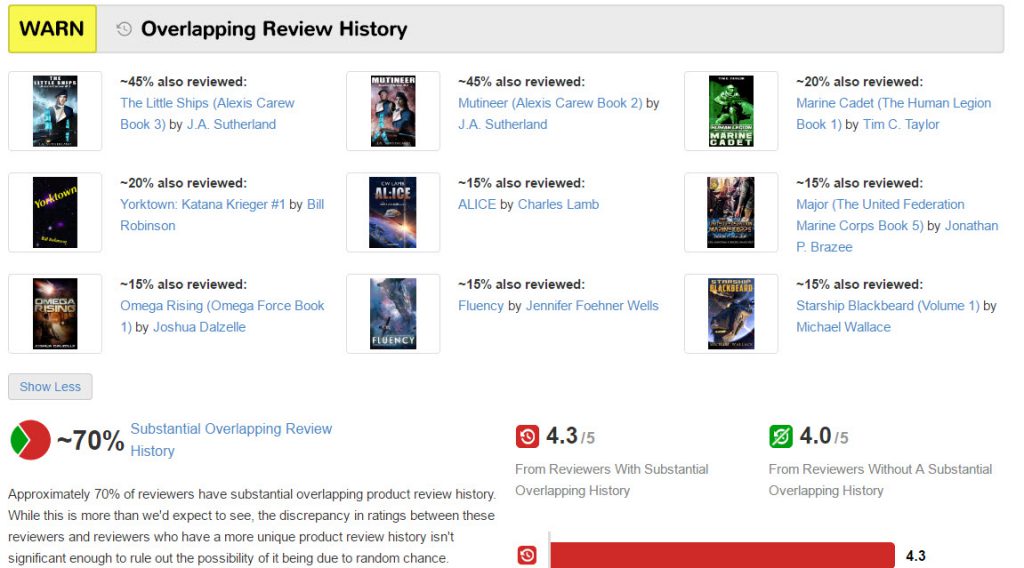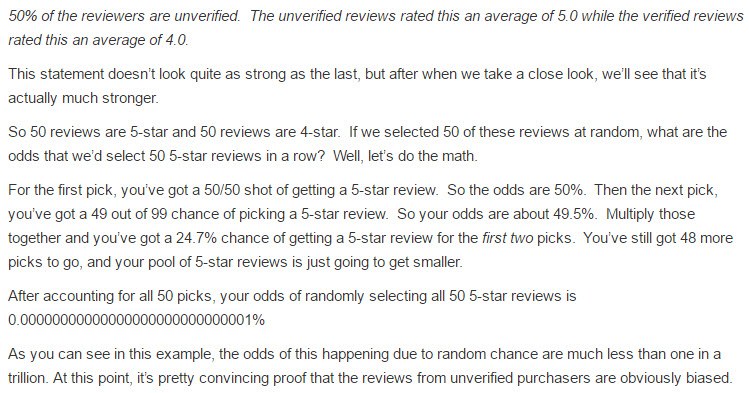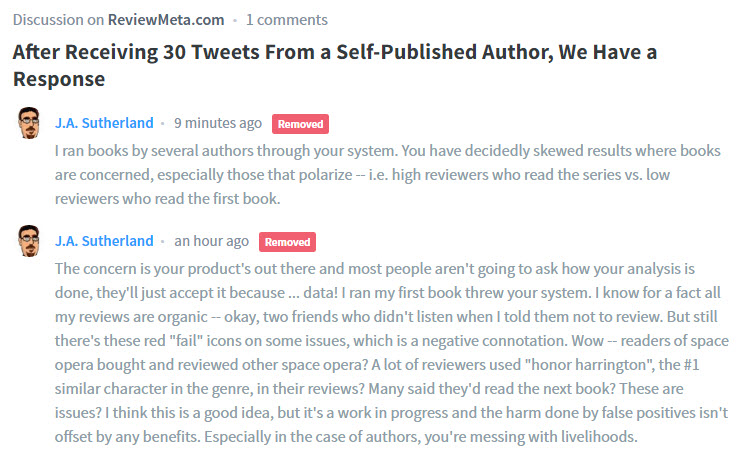Your cart is currently empty!
Author: sutherland
-
Business of Writing: Taxes and Why Authors Are Surprised By Them
[et_pb_section admin_label=”section”][et_pb_row admin_label=”row”][et_pb_column type=”4_4″][et_pb_text admin_label=”Text” global_module=”5451″ saved_tabs=”all” background_layout=”light” text_orientation=”left” use_border_color=”off” border_color=”#ffffff” border_style=”solid”]
This post is part of my Business of Writing series. As part of this series, I discuss law and taxes, so it’s important for you to remember that I’m neither a lawyer nor a tax professional. This is not advice — it’s my understanding and, in many cases, what I do and why. You should take this as the base to develop your own knowledge and understanding, or consult the appropriate professionals. Also, I live in the US, so am really only speaking to US law and the US tax code.
[/et_pb_text][et_pb_text admin_label=”Text” background_layout=”light” text_orientation=”left” use_border_color=”off” border_color=”#ffffff” border_style=”solid”]
It’s Tax Season in the US, and throughout the land there echoes amongst the hills and valleys of writers’ forums the wailing cries of horror, disbelief, and pain as writers who met some measure of success last year find out what it will cost them.
Short answer: A lot.
The long answer is that you should be working to understand your tax burden and minimize it even before your book is finished. The time to start working on this year’s taxes is today, not next January or, worse, April.
I’m going to delve into a number of tax-topics over the coming weeks, but, first, it’s important that I point out I’m not a tax professional. I must do that because there are laws about offering tax advice when you’re not that thing. So none of this is advice — it’s my understanding, and, in many cases, what I do and why. You should use it as a base for your own understanding, but then do your own research and make your own decisions — or hire a tax professional to offer advice.
That said, in this post I plan to address why taxes surprise so many writers and why you should be thinking about potential taxes now rather than later.
Why Taxes Surprise Us
The US tax system is complex and convoluted. As of this writing, it’s over seventy-four thousand pages. If you could read War and Peace in a week, it would take you a year to read the US tax code.
In addition, most of our interaction with the tax system is designed to hide its complexity from us and make it even more obscure. If you have a “regular” job as an employee, most of the tax system is hidden from you behind the withholding your employer does every paycheck. Most Americans neither know nor care how much they pay in taxes — if you ask them how much they make, the first words they say are usually, “Well, I take home …”
Most people’s interaction with “taxes” is solely the annual filing season — and because of withholding rules that ensure the government gets more than its cut from each paycheck, most people get a refund at the end of the year.
So the very idea of calculating taxes and writing a check for them throughout the year is entirely surprising and unexpected. What’s more unexpected is the amount you’ll have to pay. Let’s look at the US tax rates for 2016:

For an example, let’s use an author who’s single, has no children, and has a pretty good day job earning upwards of $40,000 a year. We’ll call her Sally.
Now let’s say that Sally doesn’t itemize deductions — she lives in an apartment and has no mortgage deduction, so she just takes the standard deduction and exemption the IRS allows. Her taxes are pretty simple every year — fill in the data from her W2 and calculate with the standard deduction and exemption. Let’s say that leaves her taxable income for the year at $37,650. If she followed the W4 withholding instructions, she probably gets a refund every year, even if it’s only a couple hundred dollars.
Sally published a book last year, though, and it did pretty well. It earned a few hundred or maybe a thousand dollars every month — say $10,000. Or she got a traditional publishing deal and got a $10,000 advance. Times are good for Sally!
But Sally’s like most people and lives paycheck-to-paycheck. That $10,000 advance went to pay off a couple credit cards, or the $1,000 every month helped her get by and provided a few luxuries. Either way, there’s really none of it left come April when Sally does her taxes.
Sally’s day job taxable income of $37,650 puts her right at the top of the 15% tax bracket, which means that the next dollar she earns, and those after it, will be taxed at 25%. That’s all of her author dollars. 25% plus 12.4% for Social Security (FICA on your paycheck) and plus 2.9% for Medicare — 40.3% of Sally’s writing income needs to be paid in taxes. That’s $4,000!
Even if Sally earned less from her day job and all her writing income fell into the the 15% tax bracket, that’s still 30.3% of every writing dollar that she’ll have to pay in taxes.
Can you write a check in April for $3,000 or $4,000?
Cue the annual wailing and gnashing of teeth by newly successful authors.
Mitigating this, by either reducing your tax burden through deductions or preparing for it by paying estimated taxes is your job throughout the year. It’s part of the business of being an author, and I’m going to talk about both of these in upcoming posts.
If you are already in this position for last year, then you should probably consult a tax professional now.
If it’s early January, then you have a chance to avoid penalties for not making estimated tax payments last year if you get enough in by the deadline (usually mid-January). Finding a tax professional does not mean taking a bag full of receipts to the dude at Walmart this tax season … you’re running a business, which means you need someone who understands business taxes (preferably someone who understands the business of an author, as well).
You can locate a tax professional through either National Association of Enrolled Agents or National Association of Tax Professionals.
My next post will look into Estimated Taxes, which you should be paying throughout the year.
[/et_pb_text][/et_pb_column][/et_pb_row][/et_pb_section]
-
Book Recommendation: The Righteous Mind: Why Good People Are Divided by Politics and Religion
[et_pb_section admin_label=”section”][et_pb_row admin_label=”row”][et_pb_column type=”1_4″][et_pb_image admin_label=”Image” src=”https://images-na.ssl-images-amazon.com/images/I/41h9b%2BYMawL._SX322_BO1,204,203,200_.jpg” show_in_lightbox=”off” url=”http://amzn.to/2fxjKXS” url_new_window=”on” use_overlay=”off” animation=”left” sticky=”off” align=”left” force_fullwidth=”off” always_center_on_mobile=”on” use_border_color=”off” border_color=”#ffffff” border_style=”solid” /][/et_pb_column][et_pb_column type=”3_4″][et_pb_text admin_label=”Text” background_layout=”light” text_orientation=”left” use_border_color=”off” border_color=”#ffffff” border_style=”solid”]
Why can’t our political leaders work together as threats loom and problems mount? Why do people so readily assume the worst about the motives of their fellow citizens? In The Righteous Mind, social psychologist Jonathan Haidt explores the origins of our divisions and points the way forward to mutual understanding. …read more at Amazon …
I heartily recommend this book to anyone interested in how the mind works or why “those people” just don’t understand what’s completely clear to you. It’s both interesting from a theoretical perspective on how we think, or rather react, regarding moral issues, and as an explanation for our differences.
When it gets to politics, the author presents a very non-partisan view. On religion, he manages to not address individual beliefs, instead concentrating on the moral foundations and mental triggers religion builds on in the human mind.
Fascinating and informative — buy it now. 🙂
[/et_pb_text][/et_pb_column][/et_pb_row][/et_pb_section]
-
No, ReviewMeta’s not ready for Prime Time – at least for books
ReviewMeta’s an interesting idea. Analyze product reviews and try to weed out the bought and paid for. Lord knows that’s an issue — and one that makes the review system on sites like Amazon less useful for everyone.
The problem is data analysis is hard — facts are facts, but what those facts mean, well, that’s another animal.
David Gaughran took a look and twitted up a storm about it. Then ReviewMeta responded with a blog post. Fair enough, and a relatively common internet kerfuffle.
The whole thing drew my attention and I decided to take a look at a few books — my own first in series, David Weber’s On Basilisk Station, and Nathan Lowell’s Quartershare. I know for a fact that my reviews are organic and reasonably suspect Weber’s and Lowell’s are too.
These three titles progressively show what’s wrong with ReviewMeta’s analysis, at least for books. First, they flagged Into the Dark, with a fail for word repetition:

Is there really any surprise that reviewers would repeat these terms when reviewing the Alexis Carew series?
Then there’s the “overlapping review history”:

Curiously, readers of a space opera / military scifi series also reviewed other science fiction. Go figure.
The results are even more disturbing in Weber’s and Lowell’s series, especially with Lowell’s Solar Clippers series, where ReviewMeta “fails” the title.

One reason given is that there’s a high ratio of unverified purchases:

Well, Quarter Share is in Kindle Unlimited, and KU readers don’t get the verified flag when they review. And then there’s that brand thing again, but with a wide range between “brand repeaters” and not in the rating:

The Solar Clippers series is pretty polarizing — many people love it and many don’t. So is there any wonder that there’d be a large delta between those who read the rest of the series (repeat the brand) and those who don’t?
There’s a bit more of an issue in their analysis itself, which shows in their description of their methodology:

Now, at first blush that makes a lot of sense — but I’m heading for HonorCon next month. I’ll be promoting my book to David Weber fans at a military scifi convention. These are my people, they’re more likely (please god) to like my books. It’s entirely plausible that there’d be a large influx of high reviews following that convention, as opposed to a streak where I don’t go to conventions and the books are found randomly on Amazon or through Facebook marketing.
Anyway, I tried to make a couple comments on ReviewMeta’s blog post, but they decided they didn’t care for the feedback.

So for authors, ReviewMeta has some serious issues and we should be concerned if people start using it to analyze our books. For other products it might actually be a useful tool, and book series may not be something they took into account in their analysis — but this is a prime example of why you should look at how something’s analyzed and not just trust that the data-guys got their stuff right the first time.
Update 9/28/16: This morning I ran the top ten kindle books through ReviewMeta: 5 fails, 3 warns, 2 passes. Nope, just nope.
-
So … I guess I’m on Patreon now …
[et_pb_section admin_label=”section”][et_pb_row admin_label=”row”][et_pb_column type=”4_4″][et_pb_text admin_label=”Text” background_layout=”light” text_orientation=”left” use_border_color=”off” border_color=”#ffffff” border_style=”solid”]
I’ve been working on a Patreon page for several months now — as well as hemming and hawing about whether to actually make it public. Patreon’s a rather different model — one I’m not entirely sure I’m comfortable with — because it’s “support” rather than “purchase”. On the other hand, the arts have a long history of patronage support, and with today’s technology, you don’t have to be a Medici to engage in it.
What convinced me to go ahead and run with it, is that someone pledged $1 a month yesterday, with the page just sitting out there. That was kind of cool. 🙂
I’ve set up different levels of monthly support — ranging from $1 to no-that’s-stupid-don’t-do-it — and the rewards will be things like:
Pictures of the Big Bad Wolf
Essays on the Alexis Carew Universe
Previews of ongoing work, such as a sneak peek at Chapter 1 of HMS Nightingale
A fictionalized serial of my family’s ongoing D&D sessions
… and more …
If Patreon’s not your thing, no worries. 🙂 If it is, maybe you’d like to check it out.
[/et_pb_text][/et_pb_column][/et_pb_row][/et_pb_section]
-
Book Recommendation: Critical Failures (Caverns and Creatures Book 1)
[et_pb_section admin_label=”section”][et_pb_row admin_label=”row”][et_pb_column type=”1_3″][et_pb_text admin_label=”Text” background_layout=”light” text_orientation=”left” use_border_color=”off” border_color=”#ffffff” border_style=”solid”]
[/et_pb_text][/et_pb_column][et_pb_column type=”2_3″][et_pb_text admin_label=”Text” background_layout=”light” text_orientation=”left” use_border_color=”off” border_color=”#ffffff” border_style=”solid”]
Tim and his friends find out the hard way that you shouldn’t question the game master, and you shouldn’t make fun of his cape.
One minute, they’re drinking away the dreariness of their lives, escaping into a fantasy game and laughing their asses off. The next minute, they’re in a horse-drawn cart surrounded by soldiers pointing crossbows at them.
Tim now has the voice and physique of a prepubescent girl. Dave finds that while he lost a foot or two in height, he somehow acquired a suit of armor and a badass beard. Julian’s ears have grown ridiculously long and pointy. And Cooper… well Cooper has gotten himself a set of tusks, a pair of clawed hands, and a bad case of the shits. He also finds that he’s carrying a bag with a human head in it – a head that he had chopped off when they were still just playing a game.
Shit just got real, and if they want to survive, these four friends are going to have to tap into some baser instincts they didn’t even know existed in their fast-food and pizza delivery world.
It’s fight, flight, or try to convince the people who are trying to kill them that they don’t really exist.
Meanwhile, a sadistic game master sits back in the real world eating their fried chicken.
Rude, crude, foul, crass, and course — exactly how I remember sessions of D&D going when I was younger. Not for those who object to profanity or scatological humor, but uproariously funny if you can deal with that. 🙂
[/et_pb_text][/et_pb_column][/et_pb_row][/et_pb_section]
-
HMS Nightingale (Alexis Carew #4) is now available for preorder!
[et_pb_section admin_label=”section”][et_pb_row admin_label=”row”][et_pb_column type=”1_3″][et_pb_image admin_label=”Image” src=”https://darkspace.press//wp-content/uploads/2016/07/160509HmsNightingaleKindle.jpg” show_in_lightbox=”off” url_new_window=”off” use_overlay=”off” animation=”left” sticky=”off” align=”left” force_fullwidth=”off” always_center_on_mobile=”on” use_border_color=”off” border_color=”#ffffff” border_style=”solid” url=”http://amzn.to/2aYNjlA”] [/et_pb_image][/et_pb_column][et_pb_column type=”2_3″][et_pb_text admin_label=”Text” background_layout=”light” text_orientation=”left” use_border_color=”off” border_color=”#ffffff” border_style=”solid”]
For Lieutenant Alexis Carew, it should be the perfect assignment — a command of her own and a chance to return to her home star system.
What she finds is a surly crew, the dregs of every frigate and ship of the line to pass through on the way to the war’s front, a first officer who thinks the command should have been his, and colonial worlds where they believe a girl’s place is somewhere very different than command of a Queen’s starship. Add to that the mysterious disappearances of ships vital to the war effort and an old enemy who seems intent on convincing her he’s changed. Then there’s the mongoose with an unnatural affinity for her boots.
HMS Nightingale (Alexis Carew #4) is now available for preorder on Amazon and will release November 10th.
[/et_pb_text][/et_pb_column][/et_pb_row][/et_pb_section]
-
Mad Cow – a new short story from a drug-induced dream
Frank and James think they have the perfect scheme — use the magic Frank learned from his grandfather to scam drug dealers out of their money. Who are they going to complain to if they can’t even remember the deal? Just one problem … near the full-moon, there are some drug dealers that magic won’t work on.
Last month I was taking muscle relaxers for a back injury — along with an over-the-counter sleep aid. The combination … well …
-
What I’m Reading: Being Wrong: Adventures in the Margin of Error
In the tradition of The Wisdom of Crowds and Predictably Irrational comes Being Wrong, an illuminating exploration of what it means to be in error, and why homo sapiens tend to tacitly assume (or loudly insist) that they are right about most everything. Kathryn Schulz, editor of Grist magazine, argues that error is the fundamental human condition and should be celebrated as such. Guiding the reader through the history and psychology of error, from Socrates to Alan Greenspan, Being Wrong will change the way you perceive screw-ups, both of the mammoth and daily variety, forever.
Intriguing book, though I think the author herself falls into a trap of defining some things as wrong when they’re really a difference of opinion. It does, though, make one stop and think a bit about why we’re so afraid to be wrong — and some of the implications of that with regard to civil discourse and disagreement.
-
What I’m Reading: The Alchemy of Chaos: A Novel of Maradaine (Maradaine Novels)
Veranix Calbert is The Thorn—the street vigilante-turned-legend—and a danger to Willem Fenmere, the drug kingpin of Dentonhill. Veranix is determined to stop Fenmere and the effitte drug trade, especially when he discovers that Fenmere is planning on using the Red Rabbits gang in his neighborhood. But Veranix is also a magic student at the University of Maradaine, and it’s exam week. With his academic career riding on his performance, there’s no time to go after Fenmere or the Red Rabbits. But when a series of pranks on campus grow deadly, it’s clear that someone has a vendetta against the university, and Veranix may be the only one who can stop them…
Not indie, but reasonably priced and a good series. Maresca tells an entertaining story and has an ambitious plan for his world, with three series planned in it. I’ve read the first books in two of those series and now the second in the Thorn series and haven’t been disappointed.
-
A Word About DRM and ebooks
I hate DRM. I hate it on music, DVDs, and ebooks, and I especially hate the idea of “licensing” things like this instead of purchasing it.
Look that up, if you think you’re purchasing content in this day and age — you’re not, you’re licensing the use of it and the licencor retains the rights to, well, change the terms whenever they really feel like it.
I hate that and don’t include DRM on any of my books when I have the choice. If there ever does turn out to be DRM on one of my books, then I didn’t have a choice with that distributor or I clicked the wrong button — let me know, so I can fix that if it ever turns up.
Yes, this means that some readers might send a copy of the ebook to a friend or even upload it to a pirate site. Well, the way I look at it is that the casual sharing is a nit in the grand scheme of things and the pirate site will get it anyway — because no DRM method is … well, any damn good at all.
The movie industry spent obscene amounts of money to develop CSS encryption for DVDs.
The Perl script to DeCSS a DVD is about twenty-four lines of code.
I know because I had that code on a t-shirt once, along with the words “This shirt is a circumvention device”, and the text of US 1201(C)3, the Digital Millenia Copyright Act on the back. The shirt was technically illegal under the DCMA. When a t-shirt becomes illegal as a copyright circumvention device, your law is rather pointless and absurd.
Anyway, I believe when you buy my book digitally, you’ve bought it and you should be able to keep it and read it in perpetuity on your preferred device now or in the future. You paid for the story, not the format.
Why is this at all important? Well, it probably isn’t to the average reader, at least not right now.
But imagine a day when Amazon goes away (I know, but I’m old enough to remember that K-mart was once the dominant retailer until another letter came along). Barnes and Noble did, just this year, close the Nook store in the UK, and many readers have lost some books in the transition to Sainsbury. iTunes deleted music files it didn’t recognize.
Bad stuff happens.
So I encourage my readers to back up their Kindles or other ereaders. It’s not difficult — plug the Kindle into a computer periodically (I do it every six months) and drag the files to a backup directory on the computer.
I go a step further and backup to Calibre. This is an ebook library manager, which can also convert to other formats. So if you switch from Kindle to some future reader, you can bring your library along with you. It’s also useful if a book is exclusive to Amazon and you’d like to read it in an epub reader — Calibre will do that conversion.
Obviously, that only works for ebooks without DRM, but there are Calibre plugins to remove DRM and allow you to backup your content.
I do, though, think there’s a bit of a societal contract between authors (and other creators) and those who purchase it.
I absolutely support your right to backup and future-proof your purchases of my books and stories, but I do hope to one day write full-time. That means having to replace my day-job income.
I hope that if you do share a file with a friend, that you encourage them to buy the book if they like it (or page through it in Kindle Unlimited, if applicable). Or send a couple bucks via Paypal to sutherland (at) alexiscarew.com.
The same applies if you picked up one of my books via a pirate site. If you liked it and want to support me being able to create more works, then throw a couple bucks my way. I know that’s not always practical for some people — maybe buy a burger for a homeless guy once in a while and we’ll call it even?